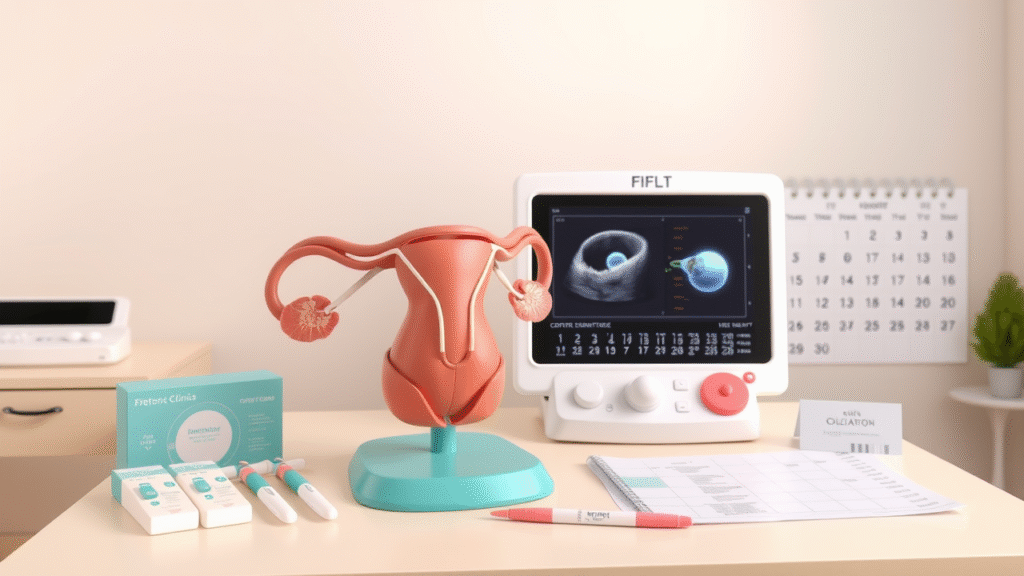Age plays a crucial role in shaping fertility, pregnancy risks, and birth outcomes for prospective parents. Understanding how both maternal and paternal age influence reproductive potential helps shed light on the challenges and opportunities that arise with time. This exploration covers key aspects such as changes in egg quality, age-related pregnancy complications, and long-term effects on children’s health. We’ll also examine the latest advancements in fertility treatments, emotional factors tied to parenting at various ages, and practical strategies to optimize reproductive health throughout life’s stages. Together, these insights provide a comprehensive look at how age impacts family planning and outcomes.
How Age Influences Fertility and Reproductive Potential
Age plays a central role in shaping fertility and reproductive potential, influencing both the ability to conceive and the likelihood of a healthy pregnancy. As individuals grow older, especially women beyond their mid-30s, natural declines in egg quantity and quality become significant factors that reduce conception success, a topic further examined under age-related changes in egg quality. This decline not only affects fertilization rates but also heightens the risk of chromosomal abnormalities, connecting closely with pregnancy complications linked to maternal age. Meanwhile, paternal age can subtly affect fertility and birth outcomes, adding another layer explored elsewhere in the blog. Understanding how reproductive potential shifts over time provides essential context for considering advancements in fertility treatments designed to address these challenges. Moreover, recognizing these age influences informs strategies for optimizing fertility health at various life stages and supports emotional readiness highlighted in psychological considerations of parenting at different ages.
Understanding Pregnancy Complications Linked to Maternal Age

Understanding pregnancy complications linked to maternal age is crucial for grasping the broader impact of age on reproductive health. As women age, the likelihood of experiencing conditions such as gestational diabetes, preeclampsia, and preterm labor increases significantly. These complications often stem from biological changes highlighted in sections like age-related egg quality decline and how this affects conception success. Additionally, older maternal age can influence birth outcomes, intersecting with long-term health implications for children born to older parents. This knowledge complements insights into paternal age’s role and reinforces the importance of advancements in fertility treatments that address these risks. Recognizing these potential challenges helps inform strategies for optimizing pregnancy health across different ages, while also considering psychological and emotional factors involved in parenting later in life. Together, these interconnected perspectives provide a comprehensive understanding of how maternal age shapes pregnancy experiences and outcomes.
Age-Related Changes in Egg Quality and Their Effect on Conception Success
As women age, the quality of their eggs undergoes significant decline, profoundly influencing conception success. This deterioration includes a reduction in chromosomal integrity and mitochondrial function, leading to lower fertilization rates and higher chances of miscarriage. Such changes are pivotal in understanding how age limits reproductive potential, as discussed earlier in the blog. The diminished egg quality also contributes to increased pregnancy complications linked to maternal age, such as chromosomal abnormalities and gestational issues. These biological shifts underscore why advancements in fertility treatments have become essential for older women seeking to conceive, offering new hope despite natural declines. Additionally, recognizing these egg-related challenges helps contextualize long-term health considerations for children born to older parents. Overall, appreciating the impact of egg quality bridges knowledge across sections on fertility influence, pregnancy risks, and strategies for optimizing reproductive health at various life stages.
The Role of Paternal Age in Fertility and Pregnancy Outcomes

Paternal age plays a significant yet often underappreciated role in fertility and pregnancy outcomes, complementing the well-studied effects of maternal age discussed elsewhere in the blog. As men age, sperm quality can decline, leading to reduced fertility potential and increased risks of genetic mutations that may affect conception success and offspring health. This dimension adds complexity to understanding reproductive challenges beyond the changes in egg quality covered in earlier sections. Older paternal age has also been linked to higher chances of pregnancy complications, echoing some risks associated with advanced maternal age. Moreover, insights into long-term health implications for children born to older fathers deepen our grasp of how parental ages jointly influence birth outcomes. Recognizing these factors underscores the importance of strategies for optimizing fertility that consider both parents’ ages. It also informs psychological aspects of parenting at different life stages, highlighting how paternal age contributes uniquely alongside maternal influences explored throughout the blog.
Long-Term Health Implications for Children Born to Older Parents
Children born to older parents face a unique set of long-term health considerations that extend beyond immediate birth outcomes. Research indicates a heightened risk for certain genetic conditions, developmental delays, and chronic illnesses in offspring when either parent is advanced in age. These risks often stem from age-related changes discussed earlier in the blog, such as diminished egg quality or increased sperm DNA fragmentation outlined in the sections on maternal and paternal age effects. Moreover, pregnancy complications linked to maternal age can influence neonatal health trajectories, potentially impacting cognitive and physical development. Understanding these implications is crucial when considering fertility treatments aimed at mitigating age-related reproductive challenges. Additionally, psychological factors tied to parenting at older ages may affect family dynamics and child well-being over time. By integrating knowledge from fertility potential to emotional considerations, this holistic view empowers prospective older parents to make informed decisions about their reproductive journey and their children’s future health prospects.
Advancements in Fertility Treatments for Age-Related Reproductive Challenges

Advancements in fertility treatments have become a crucial response to the reproductive challenges posed by advancing age. Techniques such as in vitro fertilization (IVF) with preimplantation genetic testing help address the decline in egg quality discussed earlier, improving conception success rates for older individuals. Additionally, egg freezing and donor eggs offer options that align with strategies for optimizing fertility at different ages, empowering those facing age-related declines to preserve or extend their reproductive potential. These innovations also intersect with pregnancy complications linked to maternal age, as early intervention can reduce risks by selecting embryos with higher viability. Emerging therapies aim to mitigate not only female but also paternal age effects on fertility and birth outcomes, expanding understanding from sections on male reproductive aging. Together, these treatment advances shape long-term health prospects for children born to older parents while alleviating some psychological burdens associated with delayed parenting, reinforcing the comprehensive nature of managing age-related fertility challenges addressed throughout the blog.
Psychological and Emotional Considerations of Parenting at Different Ages
Parenting at different ages carries unique psychological and emotional dimensions that intersect with the biological factors discussed in other sections of the blog. Younger parents may experience heightened stress related to financial stability and social support, which can influence pregnancy outcomes and long-term child health, as explored under “Long-Term Health Implications for Children Born to Older Parents.” Conversely, older parents often face concerns about energy levels and generational gaps but may benefit from greater emotional maturity and life experience, potentially easing some challenges highlighted in “Understanding Pregnancy Complications Linked to Maternal Age.” These emotional considerations also tie into decisions around fertility treatments detailed in “Advancements in Fertility Treatments for Age-Related Reproductive Challenges,” where the psychological readiness to pursue assisted reproduction plays a critical role. Overall, understanding these nuanced mental and emotional aspects enriches our grasp of how age impacts not only physical fertility but the holistic experience of parenting across life stages.
Strategies for Optimizing Fertility and Pregnancy Health Across Different Ages
Navigating fertility and pregnancy health at various life stages requires a blend of personalized care, informed choices, and awareness of age-related factors. By embracing strategies that honor the body’s changing rhythms and addressing potential risks thoughtfully, individuals can foster healthier outcomes for themselves and their children. This holistic approach connects deeply with the broader understanding of reproductive potential, complications, and emotional journeys explored throughout this discussion. For those seeking compassionate guidance amid these complexities, MomDadDispatch.com remains a steady companion, offering insight rooted in empathy and real-life experience.






